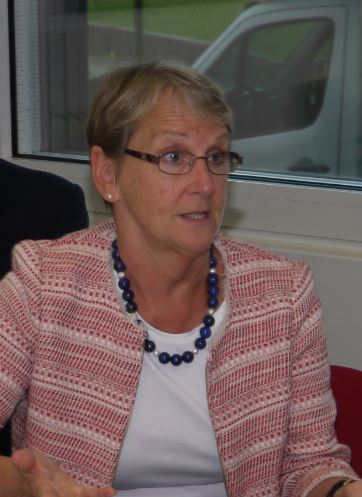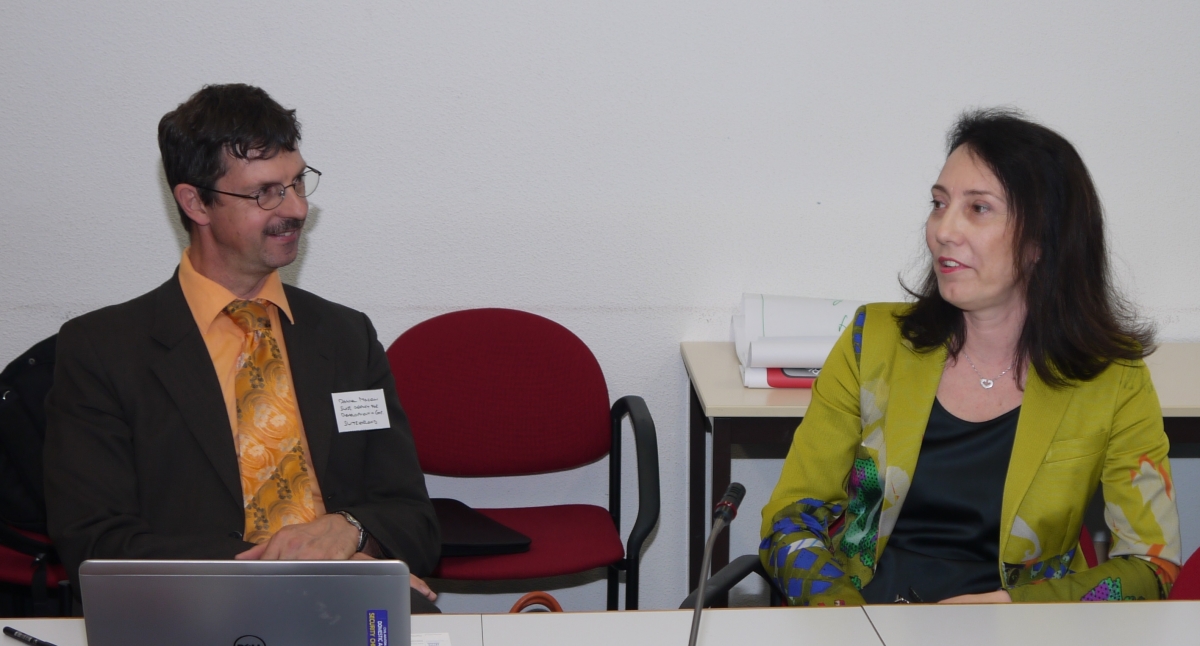1 - 2 October 2014, Geneva, Switzerland - Participants from 16 UN organizations and 8 UN CC:Learn countries took part in the 5th Steering Group Meeting of UN CC:Learn Partners, 1-2 October 2014, Geneva, Switzerland. The meeting allowed to wrap up the first phase of the UN CC:Learn project and discuss activities for the second phase. Achievements of the pilot countries (Benin, Dominican Republic, Indonesia, Malawi and Uganda) were discussed, and three new partner countries were introduced (Burkina Faso, Ethiopia and Kazakhstan). The meeting was also the opportunity to present the new Climate Change Learning Ambassadors. Participating agencies included CEB Secretariat, FAO, IFAD, ILO, ITU, UNDP, UNEP, UNESCO, UNFCCC Secretariat, UN-Habitat, UN-REDD Secretariat, UNICEF, UNITAR, UNU, WHO, and WMO. In her welcome remarks, Ms. Sally Fegan-Wyles, the Executive Director of UNITAR, stated that she was eager to see the upscaling of the UN CC:Learn project. She emphasized that “it is time for the UN to raise ambition, work faster, better, and do more” to address climate change. She also took the opportunity to present five newly appointed Climate Change Learning Ambassadors, individuals that have played a key role at a national level for UN CC:Learn and are motivated to share their technical knowledge and experiences with new countries.
In her welcome remarks, Ms. Sally Fegan-Wyles, the Executive Director of UNITAR, stated that she was eager to see the upscaling of the UN CC:Learn project. She emphasized that “it is time for the UN to raise ambition, work faster, better, and do more” to address climate change. She also took the opportunity to present five newly appointed Climate Change Learning Ambassadors, individuals that have played a key role at a national level for UN CC:Learn and are motivated to share their technical knowledge and experiences with new countries. Ms. Elena Manaenkova, Chair of the High-level Committee on Programmes (HLCP) Working Group on Climate Change, referred to the recent Climate Summit organized by the UN Secretary General, highlighting that UN CC:Learn was a successful example of a One UN initiative aiming to support ambitious climate action.
Ms. Elena Manaenkova, Chair of the High-level Committee on Programmes (HLCP) Working Group on Climate Change, referred to the recent Climate Summit organized by the UN Secretary General, highlighting that UN CC:Learn was a successful example of a One UN initiative aiming to support ambitious climate action.
Mr. Daniel Maselli, Senior Policy Advisor at the Swiss Development Corporation, added that “one of the reasons of the success of UN CC:Learn is that it is driven by demand and by the country partners”.
The discussions covered the three Programme Areas of UN CC:Learn: (1) Knowledge-Sharing and Management, (2) One UN Training on Climate Change, and (3) National Projects. UN CC:Learn’s strategic engagement with additional climate change thematic areas (NAPs, REDD+, GFCS) was endorsed. New partner countries were shortlisted and an innovative regional programme for Central America was given the go ahead.

- Burkina Faso and Ethiopia join the UN CC:Learn partnership.
- Kazakhstan attends as a potential future UN CC:Learn partner.
- Five Ambassadors for Climate Change Learning appointed.
- Six new One UN learning products endorsed for development including: a learning module on climate change and health; an online academy and resource guide on REDD+; case studies on national adaptation planning; as well as a resource guide and an introductory module on climate change and cities.
- UN CC:Learn first regional project approved – to focus on Central America.
UN CC:Learn is a partnership of more than 30 multilateral organizations supporting countries to design and implement systematic, recurrent and results-oriented climate change learning. At the global level, the partnership supports knowledge-sharing, promotes the development of common climate change learning materials, and coordinates learning interventions through a collaboration of UN agencies and other partners. At the national level, UN CC:Learn supports countries in developing and implementing national climate change learning strategies. Through its engagement at the national and global levels, UN CC:Learn contributes to the implementation of Article 6 of the UNFCCC on training, education and public awareness-raising, and the 2012-2020 Doha Work Programme. Funding for UN CC:Learn is provided by the Swiss Government and UN partners. The Secretariat for UN CC:Learn is hosted by the UN Institute for Training and Research (UNITAR).

